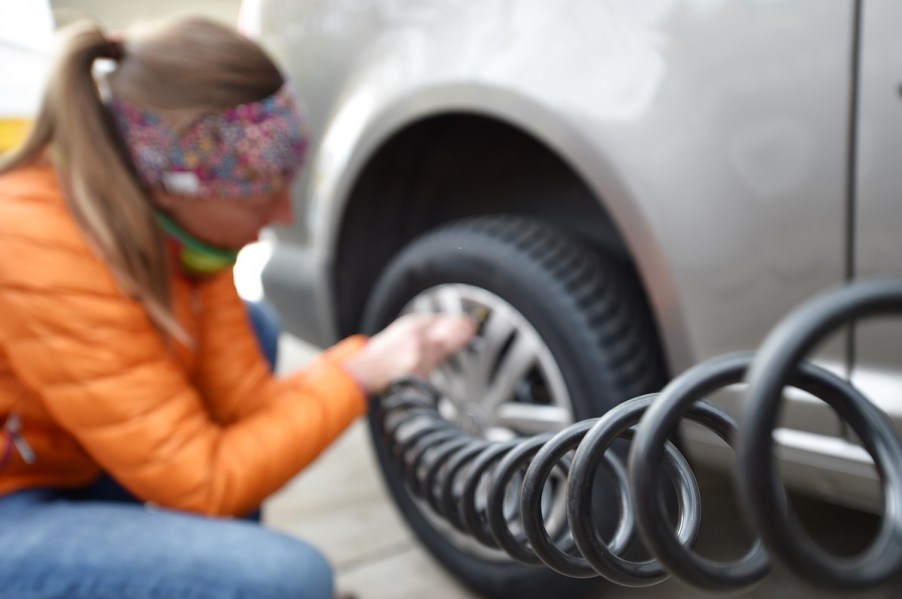
Will Properly Inflating Your Tires Actually Improve Gas Mileage?
Among a million other things, inflating your tires to the proper level is something you’ve probably heard improves gas mileage. When the vehicle drives on flattened tires, it might not move as well as it should. Tons of other factors go into something like this. The real question is, what’s the truth? Will properly inflating your tires actually improve gas mileage?
Will properly inflating your tires improve gas mileage?
With the current price of gasoline, people will do just about anything to avoid needing to fuel up so often. Staying away from the gas pump for as long as possible is the best way to save money. According to 12 News Now, a comedian took to Twitter to make a proposal for decreasing gas prices. Of course, this made everyone question the validity of the idea.
A. Whitney Brown, a writer and comedian best known for his work on Saturday Night Live, said that if people properly inflated their tires, “it would more than make up for the oil we’re not getting from Russia.” He went on to say that it would reduce total fuel consumption by three to four percent. While that sounds great, is it true? Do properly inflated tires improve gas mileage, and in turn, if everyone inflated their tires properly, would we make up for the lost Russian oil?
Yes, properly inflated tires can help improve gas mileage

According to 12 News Now, properly inflating your car’s tires can help improve your gas mileage. Using sources at the U.S. Department of Energy and the Environmental Protection Agency’s website fueleconomy.gov, 12NN uncovered the truth. A person can improve their vehicle’s gas mileage by up to 0.6 percent on average and up to three percent in some cases by keeping their tires inflated to the proper pressure.
That’s not the only benefit of always having proper air pressure in your car’s tires. The DOE also says proper inflation enhances safety, improves performance, and causes more even wear to prolong tread life.
“Under-inflated tires can lower gas mileage by about 0.2% for every 1 PSI (pounds per square inch) drop in the average pressure of all tires. Properly inflated tires are safer and last longer,” the DOE wrote. The NHTSA also says that drivers can save money on tire maintenance and fuel by adequately inflating their tires.
Why does tire pressure affect fuel economy?
Shean Huff, a staff researcher at Oak Ridge National Laboratory, explained the science behind why tire pressure affects fuel economy. “Properly inflating the tires is a way to minimize the amount of energy it takes to push the vehicle down the road. So as the tire pressure goes down below the optimum pressure, the tire deforms or flattens… and as the tire flattens, then it’s more difficult for the tire to roll on the pavement, and then that requires more energy to move the vehicle down the road,” he told VERIFY.
Typically, car owners can find the proper tire pressure on the sticker located in the jamb of their driver’s side door. Sometimes, it’s also available in the glove box, the owner’s manual, or you can Google your year/make/model, tire brand, and find the proper PSI. AAA warns against using the maximum pressure found on the tire’s sidewall because this is the pressure needed to meet the tire’s full-rated load-carrying capacity. It is not the pressure required for your particular vehicle and everyday driving.
Make sure to properly inflate your car’s tires
While gas prices are higher than they’ve ever been, there’s very little we, as car owners, can do about it. People still need to drive every day, so avoiding buying expensive fuel isn’t an option for most. However, there are some things you can do to improve your car’s fuel economy overall. One of the easiest things to do is make sure your car’s tires are properly inflated. This will maximize the energy it takes to push your vehicle down the road and therefore saves you money on gas. That’s why the answer is yes; properly inflating your tires will improve your gas mileage.



